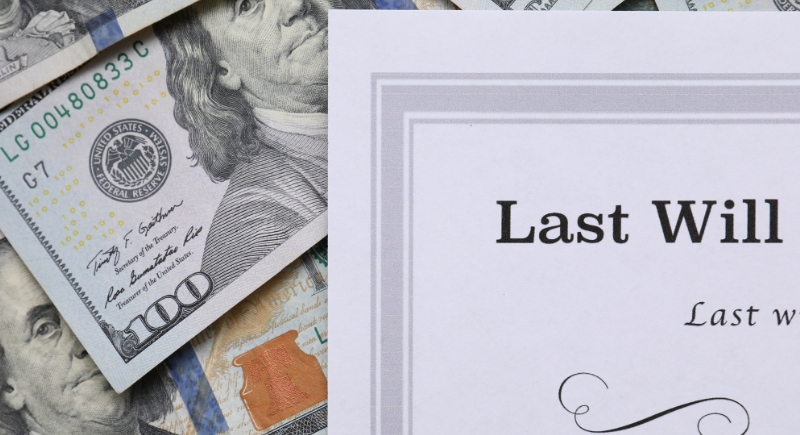Why You Shouldn’t Leave a Large Inheritance for Your Children
Leaving your children a large inheritance might seem like the natural thing to do, but it often causes more harm than good. Many financial experts say that sudden wealth can erode drive, create family tension, and even lead to legal battles. Here’s why passing down too much money can end up hurting more than it helps.
Too Much Money Kills Motivation

Credit: pexels
When kids grow up knowing a financial cushion awaits, their hunger to achieve can fade. Research shows heirs often earn less and take fewer risks once they expect money to fall from the sky. True independence is earned, and that’s the real wealth worth leaving behind.
The Money Melts Away Fast

Credit: Getty Images
Money that comes easily rarely lasts. Studies show that many people who inherit sizable sums or win the lottery burn through it fast—sometimes within just a few years. Sudden wealth can lead to impulse spending, poor planning, and bad investments. Without discipline or guidance, even a six-figure inheritance can disappear before it has a chance to build real security.
Family Feuds Are Common

Credit: Getty Images
Few things start a family feud faster than a will. About half of inheritance disputes involve siblings, and many end with lifelong rifts. Old resentments resurface, and “who got more” becomes the new favorite argument at every holiday dinner.
The Legal System Eats It Alive

Credit: Canva
When an estate ends up in court, the real winners are usually the lawyers. Legal fees, probate delays, and court costs can eat through savings faster than most families expect. What was meant to support loved ones can shrink year after year in drawn-out disputes, until the money you built is spent on paperwork instead of people.
Giving Too Much Can Rob Life’s Joy

Credit: Getty Images
When everything is handed over, the thrill of earning it fades. Some heirs say that once money stopped being a concern, their sense of purpose slipped away too. The effort and discipline that build a life also give it meaning. Give too much, and you risk taking that part from them.
Creditors and Scammers Circle Fast

Credit: Canva
Sudden money attracts the attention of the wrong kind. Scammers, creditors, and hangers-on often appear as soon as someone inherits a sizable sum. If your child runs into legal or financial trouble, that money can vanish fast. Without protection in place, what you leave behind may end up covering debts instead of helping the person you cared for.
Generational Wealth Rarely Survives

Credit: Canva
Most family wealth doesn’t last. Research shows that by the third generation, almost all of it is gone. One generation builds it, the next holds on, and the last spends it away. What endures isn’t the money itself but the habits behind it. Teaching discipline and perspective leaves a legacy that outlives any bank account.
It May Undermine Your Own Retirement

Credit: Canva
Leaving a big inheritance sometimes means shortchanging yourself. With rising healthcare costs and longer lifespans, even solid savings can evaporate. Parents who give away too much might later depend on the very children they hoped to help. Protecting your own stability first is practical. It keeps everyone secure, not just sentimental.
Cold Money Feels Hollow

Credit: Canva
Money given after death rarely carries the same weight as help offered in life. Gifts shared while you’re present—paying for education, helping with a first home, funding a passion—create connection and gratitude. An inheritance that arrives later can feel detached, like a transaction without a story behind it. Warm moments last longer than cold money ever will.
Conditions Can Create Resentment

Credit: iStockphoto
Many parents try to shape good behavior with inheritance rules: finish college, marry right, hold a job. But such guardrails often backfire. Children can feel judged or compared to siblings who meet those benchmarks differently. What was meant to inspire responsibility may instead create rivalry or resentment. Love shouldn’t come with fine print.
Market Swings Can Shrink It Overnight

Credit: Getty Images
A strong economy today doesn’t guarantee tomorrow’s value. If your estate relies heavily on stocks or property, market downturns can slice it in half before it’s even distributed. The Vanderbilts learned this the hard way: their fortune was gone within three generations. Markets move fast.
Taxes Take a Giant Bite

Credit: pexels
Estate taxes can take a significant share before your family sees a dime. The federal rate on large estates can reach 40%, and several states add their own tax on top. Without smart planning, a portion of what you built may end up with the government instead of your heirs. Tools like trusts or charitable funds can help keep more of it in the family.
It Can Create Lifelong Entitlement

Credit: iStockphoto
Money that requires no effort can change how people see themselves and others. Some research suggests that unearned wealth can weaken empathy and inflate confidence. When comfort comes without effort, its value fades. Traits like gratitude and persistence grow through experience, not inheritance. A large gift may offer ease, but it rarely builds character.
It Can Isolate Your Kids From Reality

Credit: Getty Images
Wealth can create a bubble that shields children from everyday experiences: things like working for a paycheck, budgeting, or handling disappointment. Without exposure to those realities, heirs may struggle to relate to others or build genuine empathy. Over time, that disconnect can make them feel misunderstood or out of touch, leaving them lonely in a world their money can’t fully buy into.
Easy Inheritance Can Stifle Innovation

Credit: Getty Images
Innovation often starts with need. When life feels too comfortable, the urge to experiment or build something new fades. Many of history’s breakthroughs came from people who had to find their own way. Handing over too much too early can quiet that drive. Money can open doors, but it can also close the ones that lead to original ideas.